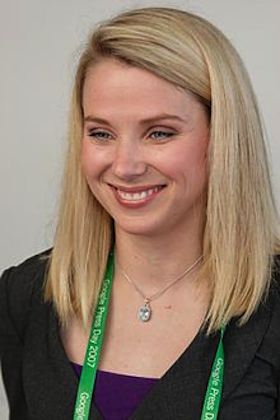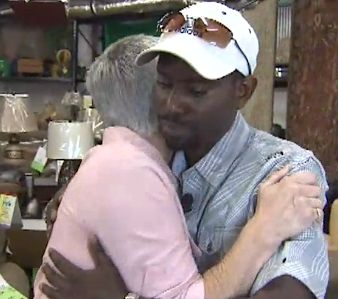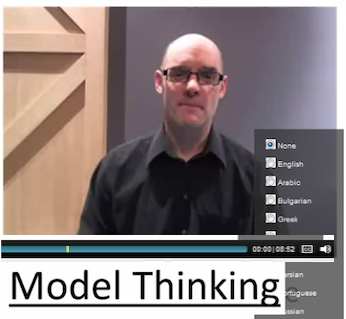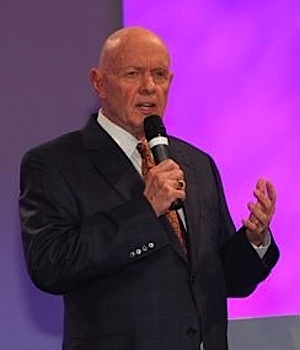 Recognized as one of Time magazine’s 25 most influential Americans, Stephen R. Covey dedicated his life to simple leadership principles that can help any person truly control their destiny and effectiveness. Since its publication in 1989, his landmark book, “The 7 Habits of Highly Effective People
Recognized as one of Time magazine’s 25 most influential Americans, Stephen R. Covey dedicated his life to simple leadership principles that can help any person truly control their destiny and effectiveness. Since its publication in 1989, his landmark book, “The 7 Habits of Highly Effective People ” sold more than 25 million copies in 38 languages, and remained on the NY Times bestseller list for five years.
” sold more than 25 million copies in 38 languages, and remained on the NY Times bestseller list for five years.
Covey, 79, died Monday from complications resulting from a cycling accident. He is being remembered as a business professor, management consultant, speaker and motivator, but also as an all around “lovely guy” and great family man, a grandfather to more than 50. Stephen truly believed that the greatest work we do is within the four walls of our own homes and was a model of a loving and committed husband and father to the end.
His teachings will live on even in those who never met him, the Covey principles having been installed like software in our brains, easily opening up their wisdom to us whenever we are wondering how to better improve our performance — in business or in our personal relationships. (Just the other day his words came back to me while I was looking at email in the morning, rather than working on what was most important: His admonition to “Put first things first”, chided me.)
Dr. Covey made a decision early in his life that his greatest contribution and life’s work would be as a teacher. Beginning with his role as a university professor at Brigham Young University, he has impacted the lives of countless millions worldwide. In 1984, Dr. Covey made the decision to leave full-time teaching as a university professor to establish a business organization, Covey Leadership Center, that could take principle-centered leadership throughout the world, with Covey himself focused on writing and speaking. From grade school and university students, to Fortune 100 CEOs and numerous heads of state, he made teaching principle-centered leadership his life’s work.
Covey’s series of 7 Habits aim to progress the student from dependence, via independence, to interdependence. Here are the basics:
aim to progress the student from dependence, via independence, to interdependence. Here are the basics:
The First Three Habits surround moving from dependence to independence (i.e., self mastery):
Habit 1: Be Proactive
Take initiative in life by realizing that your decisions (and how they align with life’s principles) are the primary determining factor for effectiveness in your life. Take responsibility for your choices and the consequences that follow.
Habit 2: Begin with the End in Mind
Self-discover and clarify your deeply important character values and life goals. Envision the ideal characteristics for each of your various roles and relationships in life. Create a mission statement.
Habit 3: Put First Things First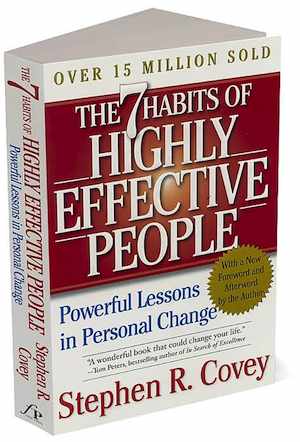
Prioritize, plan, and execute your week’s tasks based on importance rather than urgency. Evaluate whether your efforts exemplify your desired character values, propel you toward goals, and enrich the roles and relationships that were elaborated in Habit 2.
Interdependence
The next three have to do with Interdependence (i.e., working with others):
Habit 4: Think Win-Win
Genuinely strive for mutually beneficial solutions or agreements in your relationships. Value and respect people by understanding a “win” for all is ultimately a better long-term resolution than if only one person in the situation had gotten his way.
Habit 5: Seek First to Understand, Then to be Understood
Use empathic listening to be genuinely influenced by a person, which compels them to reciprocate the listening and take an open mind to being influenced by you. This creates an atmosphere of caring, respect, and positive problem solving.
Habit 6: Synergize
Combine the strengths of people through positive teamwork, so as to achieve goals no one person could have done alone. Get the best performance out of a group of people through encouraging meaningful contribution, and modeling inspirational and supportive leadership.
Self Renewal
The Last habit relates to self-rejuvenation:
Habit 7: Sharpen the Saw
Balance and renew your resources, energy, and health to create a sustainable, long-term, effective lifestyle. It primarily emphasizes on exercise for physical renewal, prayer (meditation, yoga, etc.) and good reading for mental renewal. It also mentions service to the society for spiritual renewal.
Covey’s 2004 book “The 8th Habit: From Effectiveness to Greatness ” is the sequel to The Seven Habits. He determined that effectiveness would not suffice in the modern “Knowledge Worker Age”. He says that “the challenges and complexity we face today are of a different order of magnitude.” The 8th habit essentially urges: “Find your voice and inspire others to find theirs…”
” is the sequel to The Seven Habits. He determined that effectiveness would not suffice in the modern “Knowledge Worker Age”. He says that “the challenges and complexity we face today are of a different order of magnitude.” The 8th habit essentially urges: “Find your voice and inspire others to find theirs…”
Photo credit: Stephen Covey 2010 – Hekerui-CC
 The Mk9 blog published a story about a “Vicious Dog” 911 call, and the Police Officer who responded to it. The man who sent the firsthand account was Officer Dan Waskiewicz, the very cop who answered the call:
The Mk9 blog published a story about a “Vicious Dog” 911 call, and the Police Officer who responded to it. The man who sent the firsthand account was Officer Dan Waskiewicz, the very cop who answered the call:



















